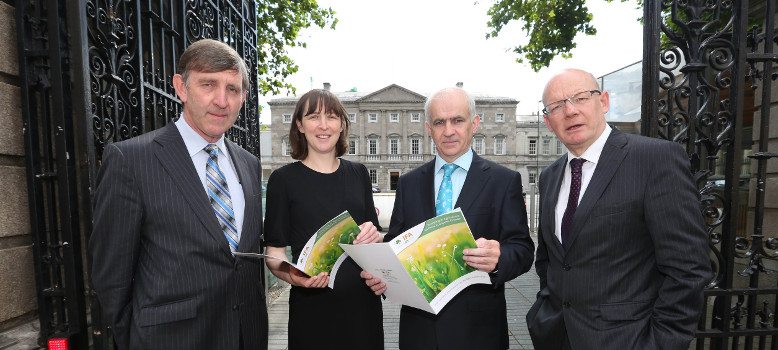‘brexit’ Budget Must Contain Measures to Improve Farm Competitiveness and Support Farm Incomes

IFA President Joe Healy has said that next month’s budget, billed as a ‘Brexit’ budget, must contain practical measures to improve competitiveness and provide support for farm incomes.
Speaking at an IFA pre-Budget briefing for Oireachtas members today (Wed), he said, “The Minister for Finance, Paschal Donohoe must make good on his commitment to frame October’s Budget in the context of the sterling weakness arising from the Brexit uncertainty. At our recent pre-Budget meeting with the Minister, we highlighted the priority issues for farmers, many of whom have been impacted directly from the weakening of sterling, particularly in the beef and mushroom sectors”.
This means making available further low cost bank financing to farmers, increasing funding for the Areas of Natural Constraint and equalising the Earned Income and PAYE tax credits.
IFA is also campaigning for the Government to seek direct support at EU level for farm level measures that counteract the price drops.
He continued, “Delivery on IFA’s budget proposals will contribute to tackling low farm incomes, underpinning the contribution of the farming and agri-food sector to the economy, including the Foodwise 2025 targets, and supporting economic activity in rural communities”.
Expenditure priorities for farm enterprises and farm families in Budget 2018 are:
- Provision of government-supported low-cost loans for farming enterprises, to fund both ongoing working capital requirements and on-farm investment
- Increased funding for the ANCs to reach €225m, commencing the process of restoring ANC payments to 2008 levels
- Increased funding of €25m for the Beef Data and Genomics Programme and a further €5m funding allocated to the Sheep Welfare Scheme, to support the delivery of additional measures
- An increase in funding for the Fair Deal Scheme to remove the discrimination against farming and other small business assets in the means assessment.
IFA Farm Business Chairman Martin Stapleton said taxation measures to address income volatility, the discrimination between self-employed and employees in the income tax system, and to support intergenerational transfer and farm restructuring, must be implemented in Budget 2018.
In addition, tax measures are required to support and deliver upon Government policy in renewable energy, through the development of renewable energy projects using farmland.
The key priorities identified for farm taxation in Budget 2018 are:
- Income volatility – extension of income averaging where farmer/spouse has additional self-employed income, greater flexibility on ‘step-out’, and provision of a deposit scheme
- Earned Income Tax Credit to be increased to the same level as the PAYE credit
- Retention of consanguinity relief for stamp duty, and extension of relief to all transfers undertaken within Registered Farm Partnership structure
- Farmland under solar panel infrastructure to be classified as a qualifying asset for the purpose of assessment for relief from Capital Acquisitions Tax upon transfer
- Reduction in the VAT rate on animal vaccines as a means to improve herd health.



